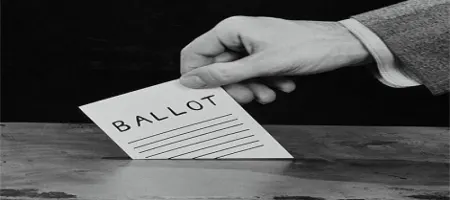Psephology is the scientific study and statistical analysis of elections and voting.
Through employing various quantitative methods and data analysis, psephologists seek to understand the underpinnings of electoral dynamics and provide insights that can inform political strategy and public policy discourse.
Origin of “Psephology”
The term was coined in 1952 by Oxford Professor R. B. McCallum and is derived from the Greek word psephos, which means pebble, and references the pebbles used by the Ancient Greeks to cast their votes.
Pioneering election analyst Sir David Butler was seen as the father of psephology, according to Reuters.
The primary objective of psephology is to analyze election outcomes, voter behavior, and the factors that influence electoral results. This includes studying voter demographics, political campaigns, electoral systems, and the impact of social and economic issues on voting patterns.
Psephologists use a wide range of quantitative and qualitative methods, including surveys, polls, focus groups, and statistical analysis, to collect and analyze data related to elections.
Psephologists are interested in understanding the voting behavior of different groups of voters, such as age, gender, income, race, ethnicity, and geographic location. They also study the behavior of political parties, candidates, interest groups, and other political actors in elections.
Psephology research often involves tracking the progress of political campaigns, analyzing voting patterns, and examining the impact of political advertising, media coverage, and public opinion on electoral outcomes.
In addition to analyzing election results, psephologists also study the mechanics of electoral systems, such as voting procedures, electoral boundaries, and the distribution of seats in legislatures.
They also investigate the impact of electoral systems on political representation and democratic accountability.

For example, psephologists may examine the effect of different voting systems, such as proportional representation, first-past-the-post, or instant-runoff voting, on the composition of legislatures and the representation of minority groups.
Psephology is a multidisciplinary field that draws on various disciplines, including statistics, sociology, psychology, geography, and history.
Psephologists work in universities, think tanks, polling organizations, political parties, and government agencies. Their research is used to inform political campaigns, develop policies, and evaluate the effectiveness of electoral systems.
One of the key challenges of psephology is the interpretation of data. Psephologists must use statistical methods and other analytical tools to make sense of complex and often conflicting data. They must also be aware of the limitations of their data and the potential biases that may affect their analysis.
In addition, psephologists must be aware of the ethical and political implications of their research, particularly in situations where their research may be used to support or oppose particular political agendas.
Use of “Psephology” in a sentence
- The psephology research conducted during the 2020 US Presidential election provided insight into the voting behavior of various demographic groups.
- The psephologists analyzed the data from the polls to predict the outcome of the upcoming election.
- The political party hired a team of psephologists to conduct research on the voting patterns in the upcoming election in order to inform their campaign strategy.